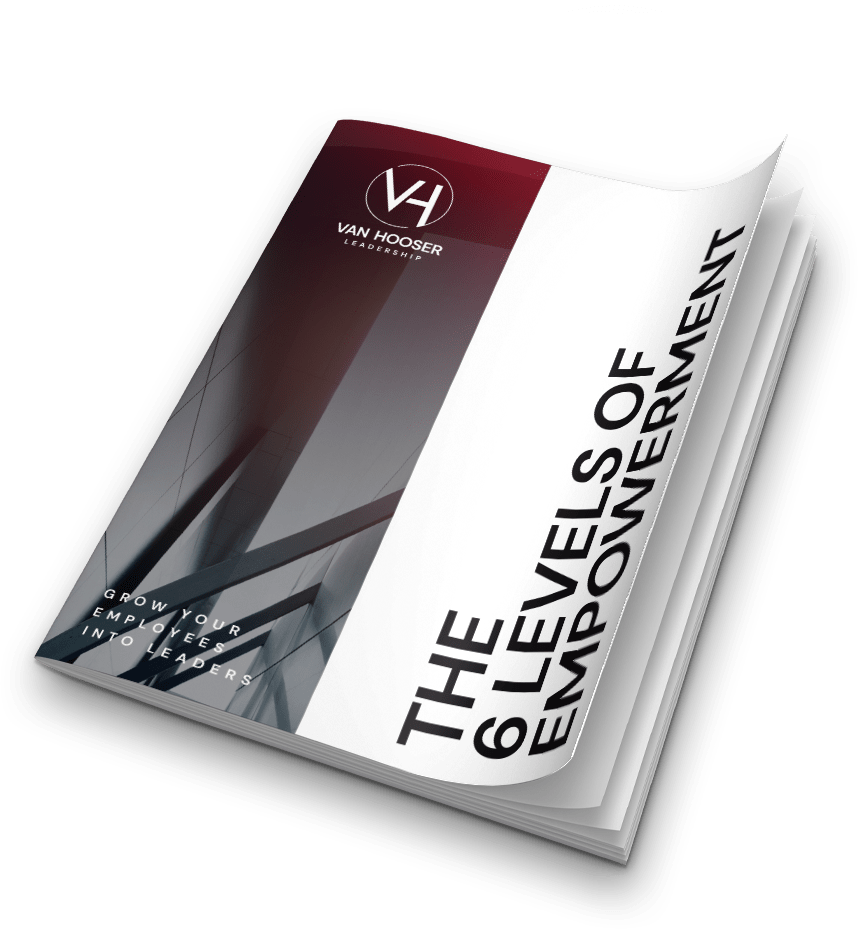Have you ever felt annoyed by someone that seems to constantly interrupt? Maybe it happens in meetings, one-on-one interactions, both publicly and privately. Regardless, if you find yourself frustrated when interrupted, here’s a results-focused solution that created a breeding ground for relieving frustration and ensuring all people involved feel valued and heard.
Remember — if there’s a point of frustration between people, there’s a story that needs to be heard and/or a story that needs to be told. (If you’ve been in the audience for one of my keynotes, this is just one instance where the “Stories, Not Just Statistics” leadership strategy can and should be applied in everyday interaction.)
First, Look Internally
If you’re frustrated when interrupted, to arrive at a mutual solution, you must first look internally. Consider what YOU really want when talking to someone else. Simply ask yourself, even definitively define for yourself for the first time in your life: When I’m talking to someone, what do I truly want from the other person?
The answer I often hear from people like you is that they simply want to feel valued and heard. I also often hear people say:
- I want the “receiver” to actually hear and understand what I’m saying — prioritizing ME in the moment.
- I want to be taken seriously.
- I want them to care.
- …I’ve even heard people say I just want them to let me talk, I just want to vent!
There’s nothing wrong with any of that, really. Those are all good, fine, respectable desires!
Now that you’ve defined exactly what you want from someone else when you’re talking with them, the next step to better mutual communication is to define your expectations.
Define Your Expectation
Consider what someone physically does in a conversation that actually makes you feel those desires you listed above (heard, prioritized, taken seriously, and so on).
On a practical level, ask yourself: What words (or lack thereof), mannerisms, and body language do I need from someone else to feel valued and heard by them?
In a team training setting, the answers to this question are often similar, but also I see wildly different answers from people on the same team, from the same department, and from the same background. I find that so interesting!
How do you answer that question? Maybe you feel heard when people make eye contact the whole time you’re talking. Someone else might answer that you feel heard when you’re not interrupted. Another person may say they want the “receiver” to sit still and not fidget. I’ve heard some say they feel valued and heard when the “receiver” takes time — even pauses — to consider their words.
Make your list of those actions that apply to you specifically. Nothing is off the table. Define your own unique expectation of others, considering what can someone else do that will make you feel valued and heard.
Uncover Your Story
In order to better connect and communicate with others, you must have a profound understanding of yourself.
Up to this point, you’ve uncovered what you want and what it would take from someone else to achieve that goal. You’re well on your way to truly improving communication between you and others forever. The solution for relieving frustration in conversations and moving forward to better connection and communication does require you to dig deeper still. But don’t worry, you’re just about to come out to the other side — the better side!
The next step is to answer why those specific physical actions you listed above, the actions you want other people to take when you’re talking…why those actions actually make you feel heard. This is where you uncover your story.
Our expectations of others are developed through our experiences — our stories. I’m discovering more and more that it’s our untold, therefore unmet, yet also assumed to be understood expectations that are at the root cause of communication issues between people — whether it be on a team or with a friend or a family member.
When you define and understand your story, you can clearly see where disconnects are happening between you and others. Additionally, you can clearly show people how to better connect with you, rather than hoping they somehow just intuitively know how to do that without ever being told. There’s such transformational power in understanding the stories that make us who we are. I’ll show you the power of uncovering your story for improved communication purposes.
To answer this question: What’s my story?, here are a few considerations to get your mind working in the right direction:
- Did you grow up being taught by family and teachers that it’s respectful to sit quietly while someone else is talking? If so, who do you remember who reinforced that the most? What exactly did they say? What else did they say? Or, were you taught a different principle?
- Were you taught that you can listen better when you maintain eye contact? When and where do you remember learning that? Who taught that to you? Was this reinforced in multiple areas of your life such as school, home, even church, and so on? Or, were you taught something different?
- Perhaps you don’t remember learning how to listen well, but instead, you remember experiencing being ignored. If that is your story, your reality, consider a specific interaction where that happened…what’s that story? Maybe your story is that you were talking to someone in the past who checked their phone, watch, etc. several times while you spoke. Maybe they looked off in the distance or down at the floor often, and then when you finished talking, the person had no idea what you said because they were, in fact, distracted. Their comment in response to you ended up being irrelevant or they asked you to repeat what you said. And, let’s say that experience wildly frustrated you. It could be that then and there, from your own experience/story, you learned exactly what NOT to do in order to listen well and make others feel valued. Your expectation was established immediately right there.
Think about your own story. Uncover what it is. Ask yourself, “Where, how, and what did I learn that defines how I measure what it means to listen well and what it means to listen poorly?” It’s in your story that you’ll uncover your own expectations for others. You’ll also see exactly how you probably have been treating others. Most people try to follow “The Golden Rule”. However, if you’ve misinterpreted the golden rule then your good intentions could be keeping you from the best results (Explore this concept more here: Why Leaders Should Rethink the “Golden Rule”)
At this point, you now know EXACTLY what you need from others and why you want it. You understand your story and your own personal expectations of others. You have full clarity within yourself. To achieve better connection, because great communication requires true connection, it’s time to shift from thinking about yourself to now thinking about them.
Second, Empathize
As a leader in today’s world, the most valuable skill you can possess is empathy. The power of empathy does NOT lie in understanding someone. Instead, the power of empathy lies in your ability to think like someone else. When you can think like someone else, you put your understanding of them into action, and therefore, you uncover exactly what you need to do to better connect with them. When you can connect with them — when you can connect with anyone — you can influence anyone at any time to take action in a way that leads to a win-win outcome. That’s powerful! That’s Infinite Influence.
To capitalize on empathy, consider THEIR story. When you make time to get to know someone else’s story, you gift yourself an unfailing compass for relieving tension and guiding both of you to understand exactly what to think, say and do to be more connected going forward.
Consider the person who is constantly interrupting you…the person who came to mind when you read the title of this article! Here is where you come back together to move forward in a mutually positive way. Make time to go listen to them, to get to know them on a deeper level. As a leader, when someone frustrates you, leaders don’t shy away from them, instead, they work to get to know them better so they can influence them to a better future together.
Here’s how I suggest your next steps be ordered in this one-on-one conversation with the person you’re not connecting and communicating well with:
- Express your intention to make sure that every time you interact with them, they know just how valued they are by you. In and of itself, by doing that, you’re essentially working to meet a fundamental need that every human has — to feel valued.
- Leaders don’t place blame, leaders take responsibility. You may have started reading this article because you felt someone was doing something wrong to you. However, if you want better communication, the solution starts with you. Own that. Discuss how you’re focusing on being a better listener and making others feel valued and heard. Ask them what you can do — or stop doing — in order to make them truly feel more valued and heard by you.
They may be able to quickly tell you what it would take from you to achieve that result. When they offer it, don’t become defensive, accept it with grace. If they aren’t sure how to answer that question, or if there still isn’t full clarity as to what you should or shouldn’t do going forward, or even to just take your connection with them deeper, move to step number three. - Ask them to tell you a story about someone who always made them feel heard. This step in and of itself will help them be more clear on their own personal expectations which you’ve already learned in this article just how powerful that is. Express to them that you want to hear their story because it would help you get to know them better, as well as, give both of you a clear, unique, even more memorable picture of what you can do to make them feel heard and valued from this point forward.
It’s easy to forget action items if that’s all you get from them. On the other hand, it’s extremely difficult to forget their story. Remember –> when they start telling you their story, you must have an intentional focus. Listen for the actions that the other person took in the story…those actions that caused the person in front of you to feel valued and heard. Those are exact answers for what you can do to cause them to feel the same way.
Then, when you put those actions into place and adapt to meet their needs, in return, they’ll be far more likely to adapt to meet your needs going forward so that you feel more valued and heard. They may stop interrupting you because they understand that DOES NOT make you feel valued and heard. Ultimately, their story may give you insights into actions to take that you would’ve never thought to do or prioritize otherwise.
If you’ve been trying to listen to others in a way that you would want them to listen to you…if you’re operating based on your story…then you may get the actions wrong. (In case you missed it earlier, explore this concept more here: Why Leaders Should Rethink the “Golden Rule”) Your well-intended actions may not connect, but in fact, cause a greater disconnect with every interaction. You may miss more opportunities to connect because you’re treating others the way you want to be treated rather than understanding and treating them the specific way they need to be treated in order to feel valued and heard. The answers for how to better communicate and connect are held within our unique stories. Uncover the story –> gift yourself answers to improved relationships! - You can even take the storytelling, the empathizing, to another level. Ask them to tell you about someone who frustrated them, hurt their feelings, or made them feel worthless by how they handled situations when they had something to say to them. Express that you want to make sure you NEVER make them feel that way. Yes, there will be some people who are chomping at the bit to tell that story to you and share all the details about how someone did them wrong in the past.
However, there will also be people who bury those stories deep inside and only pull them out for those they fully trust. In order for them to trust you enough to tell you this story, you may have to share a similar story of your own first. If you show vulnerability first, it might be the catalyst for them to reciprocate. Once again, when listening to other people’s stories, you’re intentionally looking for answers — that’s how you capitalize on empathy. With this story, you’re looking for what NOT to do — ever — when having a conversation with them. And if you uncover an answer where you’re immediately guilty of doing the same thing, it’s a perfect place for an authentic apology. I already know you’d never intend to devalue someone. They need to know and hear that from you, too.
Their Story, Your Action Items
After the conversation, make time to consider their story and yours. Consider the specific action items required from you to better connect and communicate with them.
The reality could be that their story may be that they’ve talked with numerous people over the years who sat quietly while they were talking. (You might think that’s great! That’s exactly what you’d want someone to do!) However, their story may be that when they finished talking to the person who was sitting quietly not interrupting, they quickly realized by their response, that the person was actually totally zoned out while they were talking. They didn’t interrupt them at all, but they also didn’t listen at all. They left the conversation feeling totally disconnected and devalued.
This may mean that if you sit quietly while they’re talking, you risk them feeling disconnected from you. Be sure that you’re not interacting with people solely based on your story, but instead, you understand them so well that you can think like them, then prioritize them in the moment by interacting with them in a way that truly connects you both. Your action item may be to intentionally interrupt them going forward to they know the whole time that you’re in it with them.
Their story may be that they made up their mind a long time ago to never make anyone else feel devalued like others have done to them. So, whenever someone is talking with them, they choose to show that they’re listening by responding in real-time. By “interrupting” you in the past, they’ve not been so egotistical, self-centered, and focused on what they have to say (as you might have assumed or as many might have told you in the past)
Instead, for this person, because of their story, when they interrupt you, their sole intention is to be so engaged that you leave the conversation feeling heard, important, and valued! They’ve been trying to treat you the way they’d want to be treated. They weren’t self-centered, instead, they just had a different approach to trying to make you feel valued and heard. Because there wasn’t a solid connection, because there were uncommunicated expectations in the past, the interactions have caused such frustration. However, now with this new mutual understanding, grace emerges and frustration subsides.
Can you see just how important it is that we truly, deeply understand and think like someone else? In today’s world when people are so diverse… when expectations can often be at opposite ends of the spectrum… when commonsense is a thing of the past… if we assume we understand someone else, if we treat them the way WE want to be treated — even if you have the best intentions — then you’re radically putting your most important relationships at risk with every interaction. Intentions don’t result in impact, actions do. That’s a risk you don’t have to take. Disconnected relationships don’t have to be part of your story!
Different People, Different Ways to Feel Valued and Heard
When you’re interrupted, I believe far more often than not, we have a case of two people who both deep down want to be respectful towards one another. You’re likely both on the same team, whether it be at work or at home. Both people want to make the other feel valued and heard. However, if there is frustration, there are probably simply two very different approaches to making that happen. Without mutual understanding, either approach can leave the other person feeling disconnected and deflated. In today’s world, a one-size-fits-all approach doesn’t work when it comes to communication.
Instead, those people who truly know the people around them so well…not just know about them, but instead deeply know their stories … will be the people who build influence better than everyone else and can move forward to positively build comradery and make a massive positive impact on the world.
Make Time to Talk
Next time you’re frustrated by someone interrupting you, decide to make time to go talk with them in private. Get to know their story and boldly share yours. By doing so, you create a mutual understanding of expectations. Both of you can see exactly how to interact with one another so that the outcome is predictably and consistently positive. Your connection will grow deeper and deeper every time.
When they see you trying to interact with them in an intentional way, the law of reciprocity comes into play. You both begin adapting to one another. This is not a one-way street! They’ll work to interact with you in an intentional way that makes you feel heard. You’ll work to do the same. Now, because you’ve both heard each other’s stories which are forever memorable, you’ll easily remember and recall each other’s unique needs and know exactly what to — or not to — say and do to connect and communicate better going forward. That’s teamwork! That’s leadership! And leadership matters because leaders change the world.
You may believe that how you define listening well is just “common sense.” And maybe it commonsense is to the majority of people around you who look like you, think like you, have similar experiences as you, and came up in the world the same way you did. But, the challenge for us all is that the world is more diverse than ever. Our stories are more varied than ever. Individual expectations are not common sense.
This can lead to extremely disconnected and frustrated people in relationships, communities, and teams. If that’s your story, I challenge you to implement the Stories, Not Just Statistics approach to leading yourself and the people around you to a better future. This strategy is future-proof. It’s not an option for success in today’s world, it’s a fundamental requirement in this post-pandemic world we live in. The beautiful reality is that this is a strategy that anyone can implement. It’s simple. You can start now. Take action today to level your leadership and results!
#StoriesNotJustStatistics
Photo by Yan Krukau: https://www.pexels.com/photo/people-having-conflict-while-working-7640830/










